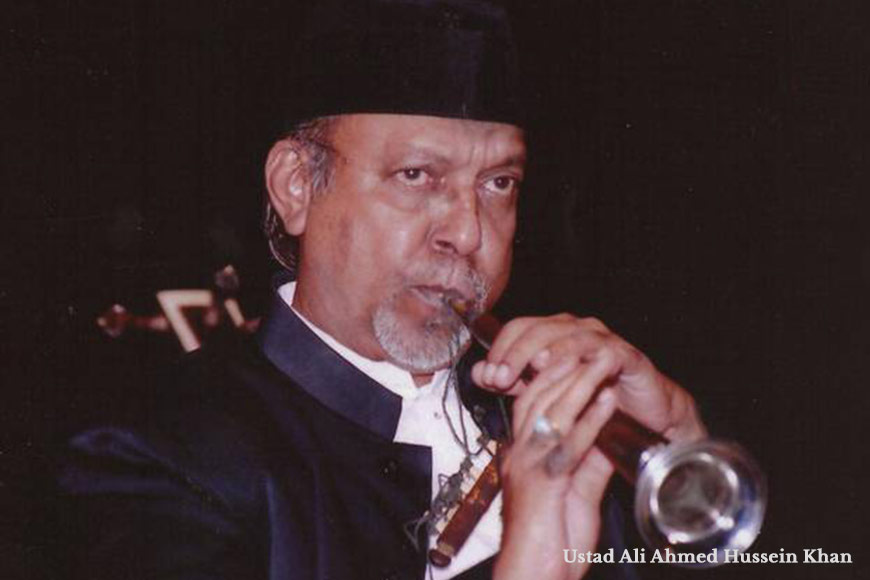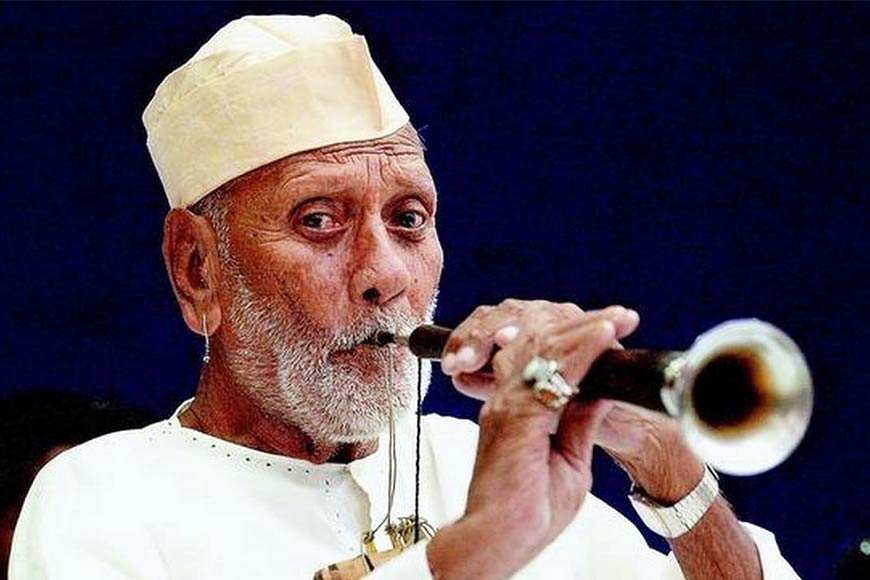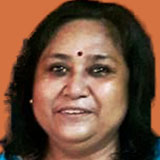The ‘Shehnai’ family of Kolkata who played at the Buckingham palace

Bengal has always been the land of music and musicians. But one instrument that has hardly been much talked about is the wind instrument of Shehnai. Though this instrument is often mis-understood as one that is popular in only North India, interestingly Bengal had produced some of the world’s best Shehnai players who lived in Kolkata.
Take for example Sajjad Hussain Khan, the first shehnai maestro to have taken the musical in-strument across the Indian borders — playing it to Queen Victoria at the Buckingham Palace. While, Ustad Ali Ahmed Hussain Khan was the one who rendered the lilting notes of Doordar-shan’s signature tune (composed by Pt Ravishankar) at DD’s inauguration.
Kolkata’s Shehnai maestro Ustad Ali Ahmed Hussein Khan’s name was almost synonymous to the instrument itself. Every evening the Kolkata Doordarshan started with the melodious refrain of “Saare Jahan Se Achchha”, re-created by Pandit Ravi Shankar and improvised and played by Ustad Ali Ahmed Hussein Khan.
Born and brought up in Kolkata, they were part of Senia Gharana of Allahabad and from their mother’s side belonged to the Banaras Gharana. Hassan Haider Ali Khan, the latest shehnai ex-ponent of the family believes: ‘The younger generation needs to be ready to take the beating first — rather than dreaming of making straight to the stage. It needs years of practice to be a sea-soned artist. Young artists need to stop thinking about short-cuts.’ He feels the enthusiasm of many foreign students towards Indian classical music is very heartening and many flock to Kol-kata to pick up Indian instruments.
 Ustad Bismillah Khan
Ustad Bismillah Khan
Kolkata’s Shehnai maestro Ustad Ali Ahmed Hussein Khan’s name was almost synonymous to the instrument itself. Every evening the Kolkata Doordarshan started with the melodious refrain of “Saare Jahan Se Achchha”, re-created by Pandit Ravi Shankar and improvised and played by Ustad Ali Ahmed Hussein Khan. Unfortunately, many thought it as Bismillah Khan Saheb’s rendition. Quite adept at handling recordings, Ustad Ali Khan was as impressive on stage – impeccably dressed up like a court musician, steeped in sur like an ascetic and yet emanating familial bond surrounded by his worthy son-disciples as shehnai accompanists and little grandsons who loved to snuggle and lean on him while he smiled indulgently and played!
His style of playing had that same sweetness, that same unmistakable aroma of Benaras, associ-ated with his legendary maternal uncle, Bismillah Khan. He literally brought Benaras to Kolkata and played in his own style. His own innovative style of playing jod-anga, gamak, baant-ki-taan etc. further enhanced the beauty of his renditions. A prolific composer, his Bhairavi and Kirwani dhuns, along with folk and modern melodies are simply matchless.
Kolkata AIR’s archive is full of such inimitable shehnai pieces with which he composed the sig-nature tune of the famous ‘Sangbad Bichitra’ (news); enriched the regular ‘Ramya-geeti’ (mod-ern Bengali songs) or, more importantly, the annual Mahalaya broadcast before the daybreak an-nouncing the advent of Navaratris and Durga Puja. Poet-singer Kabir Suman’s homage to Bis-millah Khan has matchless shehnai-interludes played by Ali-da. He happily shared concert plat-forms to play duets with eminent vocalists like Purnima Chaudhuri and sitar maestro Shahid Par-vez and enthralled his listeners.
Ustad Ali Ahmed Hussein Khan remained grateful to Kolkata, his birthplace, which gave him due respect despite the awesome presence of another legend.
It was his music which saw him on numerous prestigious concert platforms in India and abroad; as the staff artiste with the Akashwani Kolkata for almost four decades and then as a Guru (shehnai) with the ITC Sangeet Research Academy (2012-2015). Despite all the hurdles and later despite his debilitating illness, Ali-da had an indomitable spirit to forge ahead. He loved to re-count the success story of his Allahabad-based grandfather Ustad Wazir Ali Khan who had re-galed the royal audience at Buckingham Palace with his shehnai when Pandit Motilal Nehru took him to London in 1910. His father Ustad Ali Jan Khan and his father-in-law Ustad Sajjad Hus-sein Khan were reputed shehnai players. Groomed by his maternal uncles Nazir Hussain Khan and Imdad Hussain Khan (Benaras Gharana), he also learnt vocal from Pandit Tansen Pandey of Senia Gharana.
Ustad Ali Ahmed Hussein Khan remained grateful to Kolkata, his birthplace, which gave him due respect despite the awesome presence of another legend. A true musician and guru, he not only groomed his sons with utmost care and lovingly inspired his little grandsons to take to shehnai, but also saw to it that the best of his disciples went to erudite masters for further knowledge. As a result, he sent his dear son-disciple Hassan Haider to learn from Pandit Arvind Parikh. His family pride and sincere labour paid off when in 2002 his sons offered a fitting trib-ute to his grandfather by playing shehnai at London’s Queen Elizabeth Hall.
It is heartening to note that a handful of his pupils, led by Hassan Haider, are making their pres-ence felt on the concert platforms with a promise to continue the legacy, that was once born on the soils of Bengal.










